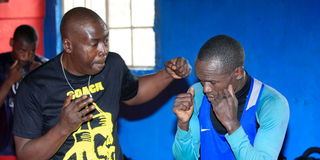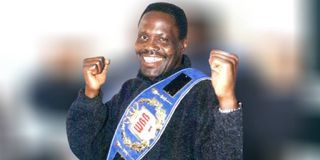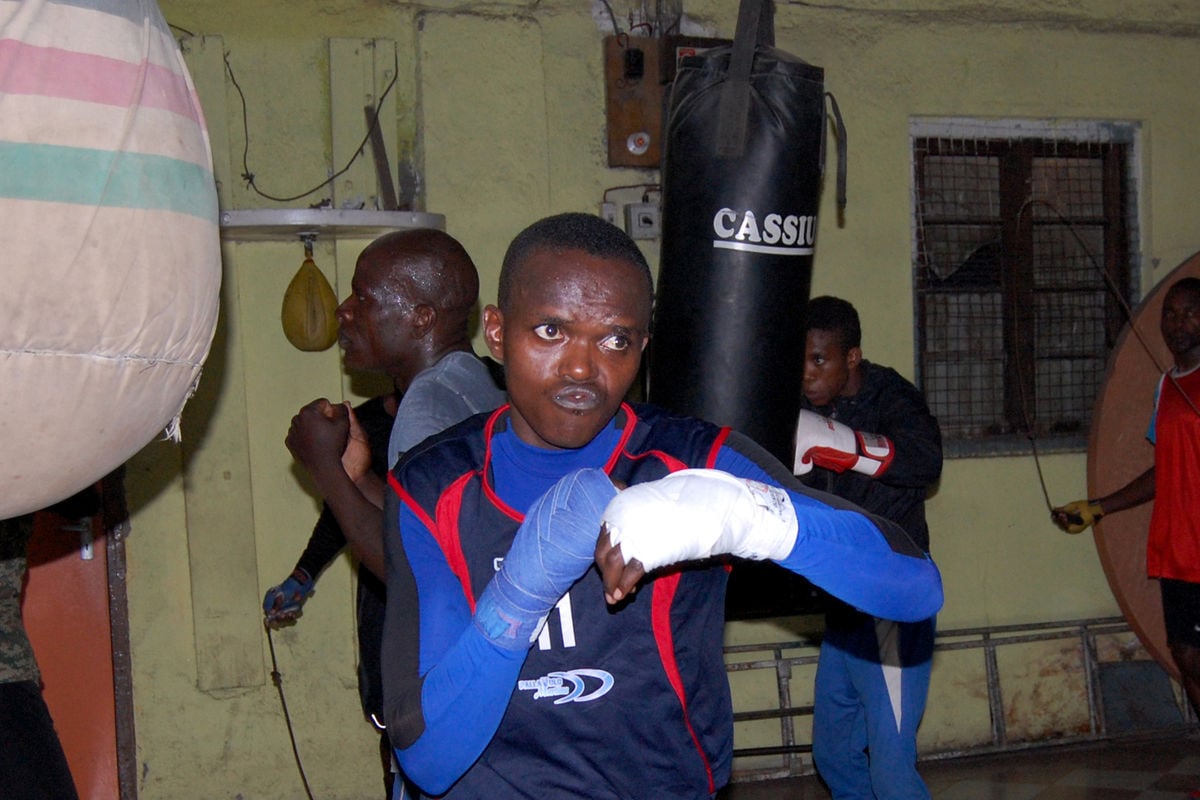Kenya’s failure to send a single boxer to the Olympic Games for the first time in 60 years has sent shockwaves in the local boxing fraternity.
Retired boxers and coaches have weighed in, terming it “a nightmare” that the country will take long to recover from.
After three successive attempts in different qualifiers, Kenyan boxers have failed to qualify for the July 26 to August 11 Olympics.
Kenyan boxers were beaten and tossed out of the ring in the first qualifier event, the September 9 to 23 African qualifiers in Dakar, and again flopped in the first World Qualification Tournament held in Busto Arsizio, Italy, from March 3 to 11.
The straw that broke the camel’s back came in the second World Boxing Qualification Tournament in Bangkok from May 24 to June 2, where all of Kenya’s boxers lost their bouts, forfeiting all hope of competing at the 2024 Olympic Games in Paris.
For the first time since Kenya competed in the Olympic Games as an independent country at the 1964 Tokyo Olympics, Kenya will not send a single boxer to the Olympics, and retired boxers have blamed it on the collapse of talent development structures, poor administration of the sport by Boxing Federation of Kenya (BFK), and general disinterest by the government in developing the sport.
Amid all these, the Sports ministry has maintained deafening silence and did not respond to telephone calls from Nation Sport.

Kenya’s boxing head coach Musa Benjamin trains now retired “Hit Squad” captain Nick Okoth ahead of a previous assignment.
Photo credit: File | Nation Media Group
The 1990 Auckland Commonwealth Games heavyweight champion, Joseph Akhasamba bemoaned the dwindling standards of boxing in Kenya, saying Hit Squad’s poor performance over the decades is a reflection of poor leadership at BFK.
Akhasamba, who is also the 1998 and 1999 Africa heavyweight professional boxing champion, explained that lack of development structures and boxing tournaments from the grassroots denied talented boxers an opportunity to hone their talents from intermediate to national league competitions.
Akhasamba, who won the World Boxing Board (WBB) in 2000 and 1998 Kuala Lumpur Commonwealth Games welterweight silver medallist Absolom Okinyi blamed the situation on the decision by local companies to abolish their boxing clubs. Kenya Airways, Kenya Breweries, Kenya Ports Authority (KPA), Postal Corporation of Kenya (Posta), and Kenya Cooperative Creameries (KCC) discontinued sponsorship for their boxing clubs and retrenched the boxers, most of whom were employees.
Clubs folded up
Clubs such as Kimbo and Rivatex which were previously bankrolled by East African Industries Limited and Rift Valley Textiles respectively, have since folded up, while Motcom which was bankrolled by Ministry of Transport and Communication, was discontinued as the government moved away from sponsoring sports clubs as part of the restructuring.
“Retrenchment rendered most of these boxers jobless, and most of these clubs collapsed,” says Akhasamba.
That left only three teams from the disciplined forces – Kenya Defence Forces, Kenya Police and Kenya Prisons – active.

Kenyan heavyweight boxer Joseph Akhasamba displays the World Boxing Board Heavyweight belt he won in 2000 after beating German boxer Rene Hani in Dresden, Germany.
Photo credit: File | Nation Media Group
“Today, regions don’t field full teams in national championship as was the case in the past,” Akhasamba says, adding that in his heyday, national team coaches were spoilt for choice, with up to eight boxers to pick from in any single category.
“Right now, Kenyan coaches only have KDF, Police, Prisons and a few other regions to pick boxers from. Boxing can’t thrive under such conditions. We end up fielding ill-prepared teams in championships,” Akhasamba, who competed for Kenya Breweries Boxing Club in 1986, says. He wants the intervention of former boxers and coaches. “The government must intervene and come up with a solution instead of b spectating,” says Akhasamba.
Two years after competing in the 1988 Seoul Olympic Games where he was eliminated in the preliminaries, Akhasamba won gold at the 1990 Commonwealth Games, and at the 1991 African Games (formerly All-Africa Games).
Akhasamba’s victory at the African Games earned him a ticket to the 1992 Barcelona Olympics where he reached the quarter-finals.
“Having good facilities to nurture boxers is key. We need talent development structures right from the grassroots,” says Akhasamba.

Kenya’s heavyweight boxer Elly Ajowi trains ahead of the Tokyo 2020 Olympic Games where he lost in the preliminary rounds.
Photo credit: File | Nation Media Group
The 1998 Kuala Lumpur Commonwealth Games welterweight silver medallist Absolom Okinyi has blamed talent flight on lack of lack of structures to absorb players. He singles out Team Kenya boxers Peter Kariuki and Fred Munga who stayed behind in Australia after the 2000 Sydney Olympics.
“Seeing nothing to return to after the Commonwealth Games, they opted for greener pastures abroad. This must change if we are to perform well again in boxing,” says Okoth, explaining that boxers should be put on professional contracts.
Overhaul of boxing
“Kenya Police team ‘Chafua Chafua’ no longer bites and there is a need for a total overhaul of boxing, even at the institutional level. Perhaps the government should set up sports academies across the counties to lure youngsters to take up education and sports.
“Most boxing local facilities only have punching bags and gloves, nothing else. We must transform social halls into fully equipped boxing facilities with the help of the county governments to nurture talent,” states Okinyi.
Patrick “Mont” Waweru, who represented Kenya in 1984 (Los Angeles) and 1988 (Seoul) Olympics says lack of involvement of former boxers in the development of the game is hurting the sport. He blames BFK officials for being intolerant to divergent views and harbouring selfish interests.
“We all can’t be teachers but some of these coaches can learn something from us if they invite us to some of these national team training sessions,” says a dejected Waweru.

National Olympic Committee of Kenya Secretary General Francis Mutuku (centre) presents members of Kenya’s boxing team a dummy cheque for a Sh2.5 million training grant ahead of the 2022 Commonwealth Games in Birmingham, England. They are (from left to right) Elizabeth Andiego, Christine Ongare, Hassan Shaffi Bakari and Nick Okoth.
Photo credit: File | Nation Media Group
He wants BFK to have structured programmes to enable local boxers to train in countries which have excelled in boxing like Cuba.
“Such these trips should be well structured and not a one-off affair. We shouln’t take boxers there few days to a major event, they won’t be helpful that way,” Waweru says.
The 2010 Commonwealth Games flyweight silver medallist, Benson Gicharu, reckons that lack of investment in junior programmes has left a big void, making it difficult to nurture talent.
Former boxer Athanus Nzau wants a total overhaul of BFK’s leadership and the national team’s technical bench, saying there will be no delivery both in administration and coaching so long as Benjamin Musa (Treasurer) and David Munuhe (Secretary General) continue serving as coaches.
Source link: Akhasamba, ex-boxers speak on Kenya’s boxing decline, offer solutions
